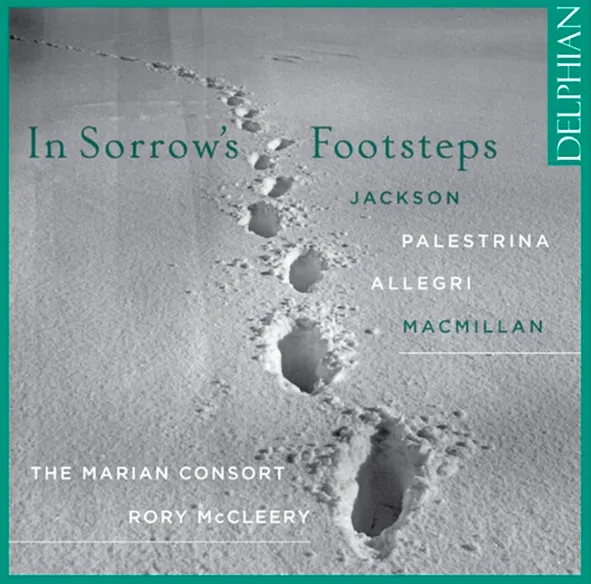
In Sorrow’s Footsteps Allegri: Miserere; Jackson: Stabat Mater; MacMillan: Miserere; Palestrina: Super flumina Babylonis; Stabat Mater; Ave Maria The Marian Consort/Rory McCleery Delphian DCD34215 63:19 mins
The sharp, jabbing gestures at the opening of Gabriel Jackson’s new setting of the Stabat Mater – like a fencer aggressively parrying an opponent – announce that wilting introspection is by no means the composer’s default position in his response to the sorrowful vision of Mary witnessing her son’s crucifixion. The same stabbing truculence occurs again at ‘Quis est homo’, while in between Jackson employs glissandos to mimic the groaning Christ, and distil the stomach-turning trauma of the spectacle. Even in more reflective passages – ‘Quis non posset’, for example – the curvaceous vocal lines are compromised by anxious melisma, catching the febrility of the raw human emotions experienced by the onlookers. The ten singers of The Marian Consort buy fully into Jackson’s immersive setting, their interactions at times possessing the immediacy of chamber opera.
A similar sense of intimate conversational interchange animates both the Marian’s fluid, sensual performance of Palestrina’s Stabat Mater, and their fresh-toned, involving account of Allegri’s much-recorded Miserere, where Choir two is evocatively distanced in the Merton College, Oxford chapel, and tenor Guy Cutting is an affecting cantor.
A modern Miserere, by James MacMillan, concludes the programme. The call-and-response exchanges between male and female voices at the heart of MacMillan’s setting – deliberately echoing Allegri – are movingly shaped by The Marian Consort’s director Rory McCleery, and the coda flares splendidly before its hushed conclusion.
Terry Blain


